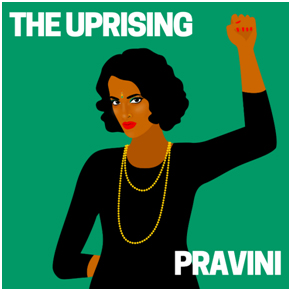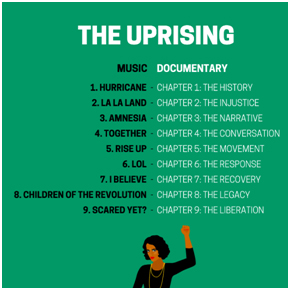Our brothers and sisters of The Decolonial Thought Community in Mexico have taken up the concept of Genocide Memorial Day that is promoted by DIN. On October 12, 1492 Columbus the Criminal opened the doors of hell for the Indigenous people of the America. On October 12 they organize an event to commemorate the Indigenous Holocaust.
The Indigenous Holocaust Memorial is an event that seeks to show a dissent, a disagreement with the narratives of submission that justify colonialism. Almost two centuries after the national liberation struggles and the end of the colonial administrations, these discourses still stand and sometimes, without any dispute. For that reason, it is important for us to disrupt this continuity, not only because of objective rigour but above all because we start from an ethico-critical position.
Already in 1992, when the 500th anniversary of the misnamed “discovery” of America or “encounter” of two worlds was being celebrated, there was an intense intellectual debate about the pertinence of the word “encounter” because it concealed the violence behind the colonization process (which led to the elimination of approximately 60% of the Mesoamerican population during the 16th century) and the asymmetry of power between the components of the supposed hybrid or “mestizo” culture.
In our state, Tlaxcala, the issue is even more complex. We are heirs of a people, altepetl, that successfully resisted the expansionism of the triple alliance led by the Mexicas (Aztecs), and that did not miss the opportunity to establish an alliance with the European conquerors to free itself from such domination, which would undoubtedly brought some benefits after the fall of Aztec empire. However, this alliance was neither a peaceful process nor an easy consensus. There were, throughout all the process, tensions, such as the initial confrontations with the Spanish of which the Otomí people can give full faith; but in addition, there were those who disagreed with this alliance, perhaps the most symbolic example is Xīcohténcatl the young captain who was executed because of his dissent.
No one can judge the attempt of liberation of a people. However, afterwards, the Tlaxcala people joined the colonizing project of the Westerners and was a relative complice in the violence that it implied. It would take some time to understand that somehow, our people had participated in the construction of their new chains of oppression and material-cultural destruction, that is, the modern regimes of domination (Patriarchy/Racism/Capitalism) that appear in the context of the colonial encounter and will soon take on a global vocation shaping the modern world system.
For us, this event means the testimony of the presence of a critical ethos of Tlaxcala and an awareness that starts by denouncing the violence of human beings against human beings as well as a commitment to contribute to the destruction of the regimes of modern global domination. We therefore join in solidarity in the series of events called by the Decolonial International Network(DIN) as: “Genocide Memorial Day”.
The meeting will be attended by Ahmed Uddin from the Islamic Human Rights Commission, a founding memberorganisation of DIN and initiator of the GMD.
The Decolonial Thought Community
[:es]El Memorial del holocausto indígena es un evento que busca dar testimonio de un disenso, un desacuerdo con las narrativas de sumisión que justifican el colonialismo. A casi dos siglos después de las luchas de liberación nacional y del fin de las administraciones coloniales, dichos discursos siguen en pie y en ocasiones, sin disputa, por ello, para nosotros es importante disrumpir dicha continuidad, no sólamente por fidelidad objetiva sino sobretodo porque partimos desde una posición ético-crítica.
Ya en 1992 cuando se celebraban los 500 años del mal llamado “descubrimiento” de América o “encuentro” de dos mundos, hubo un intenso debate intelectual acerca de la pertinencia de la palabra “encuentro” que encubría la violencia detrás del proceso de colonización (que llevó a la eliminación de apróximadamente el 60% de la población mesoamericana durante el S. XVI) y la asimetría de poder entre las componentes de la supuesta cultura híbrida o “mestiza”.
En nuestro estado, Tlaxcala, la cuestión es todavía mucho más compleja, somos herederos de un pueblo altepetl que resistió exitosamente al expansionismo de la triple alianza liderada por los mexicas, y que no dejo pasar la oportunidad de establecer una alianza con los conquistadores europeos para liberarse de dicha dominación, lo que indudablemente traería algunos beneficios tributarios y de otra índole después de la caída de Tenochtitlán, no obstante, dicha alianza no fue ni un proceso pacífico ni una suave decisión bajo un consenso total, hubo, durante todo el proceso tensiones, como los enfrentamientos iniciales con los españoles de los cuales el pueblo Otomí puede dar plena fe, pero además, hubo quienes estuvieron en desacuerdo con dicha alianza, quizá el ejemplo más simbólico sea Xīcohténcatl el joven quién fue ejecutado a causa de su disenso.
Nadie puede juzgar el intento de liberación de un pueblo, sin embargo, en lo posterior, el pueblo tlaxcalteca se unió al proyecto colonizador de los occidentales y fue complice relativo en la violencia que éste implicó, pasaría un tiempo para comprender que de alguna forma, nuestro pueblo había participado en la construcción de sus nuevas cadenas de opresión y destrucción material-cultural, es decir, los regímenes de dominación modernos (Patriarcado/Racismo/Capitalismo) que aparecen al calor del encuentro colonial y que pronto cobrarán una vocación global moldeando el sistema-mundial moderno.
Para nosotros este evento significa testimonio de un ethos tlaxcalteca crítico y una toma de consciencia que parte por la denuncia de la violencia del ser humano contra el ser humano además el compromiso de contribuir a la destrucción de los regimenes de dominación modernos globales, nos inscribimos por tanto solidariamente en la serie de eventos denominados como por la Red Internacional Decolonial como: “Genocide Memorial Day”.
Nuestras Hermanas y Hermanos de la Comunidad de Pensamiento Decolonial en México se han identificado con el concepto del Día Memorial del Genocidio promovido por la DIN. En Octubre 12 de 1492, Colón, criminalmente, abrió las puertas del infierno para los pueblos indigenas de América. En octubre 12 organizan un evento para conmemorar el Holocausto Indigena.
“Ahmed Uddin de la Comisión de Derechos Humanos Islámicos IHRC, un miembro fundador organizador de la Red Internacional Decolonial DIN e iniciador del Día del Memorial del Genocidio asistirá al evento.”
La Comunidad de Pensamiento Decolonial


